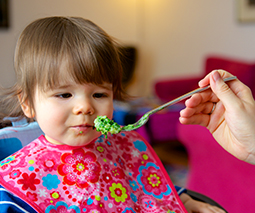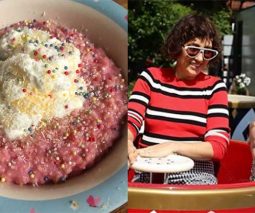Researchers may have found a cure for picky little eaters

A small study of children with diagnosed restrictive eating has found that a special program can help parents make ‘life-changing’ improvements to their child’s eating habits.
Cognitive-behavioural therapy
While the study group was tiny – just 21 very fussy-eating kids – the results were significant enough to get parents and researchers pretty excited.
“Pediatric researchers recently described a brief group cognitive-behavioral therapy program that provides parents with specific techniques to improve their child’s mealtime behaviors and expand the range of foods their children will eat,” Science Daily reports.
Study lead Katherine Dahlsgaard, PhD, ABPP, Clinical Director of the Anxiety Behaviors Clinic at Children’s Hospital of Philadelphia (CHOP). She says her hospital’s Picky Eaters Clinic has proven that the right intervention can help families reduce the stress of food battles.
“Our research shows the acceptability, feasibility and positive outcomes of the Picky Eaters Clinic, a seven-session, parent-only, group-based intervention intended to train parents of children with Avoidant/Restrictive Food Intake Disorder (ARFID).”
Avoidant/restrictive food intake disorder (ARFID) is an eating or feeding disturbance that is characterized by a persistent failure to meet appropriate nutritional and/or energy needs.
– source
The Picky Eater’s Clinic
The kids studied were aged between four and 12 and they were not your average picky eaters.
Their eating was so restricted that their parents were incredibly stressed and they reported the following:
- Diet containing less than 20 foods
- Refusal of entire food groups (typically vegetables, meats or fruits)
- The need to make a separate meal
- Difficulty travelling, socialising or going to restaurants
- High child distress/refusal to eat when presented with a new or non-preferred food; and
- Lack of child’s motivation to change or unwillingness to receive treatment.
Clearly, this is a nightmare for both worried kids and their parents.
Facilitate, expose, strategise
So into the Picky Eater’s Clinic they went, undertaking a series of sessions over a six month period and a specially designed behavioural change program at home.
Homework included being challenged to eat a portion of a new or non-preferred food. Success resulted in a post-meal reward which was usually screen time.
“Findings indicate that a relatively brief group treatment that focuses specifically on training parents to facilitate and carry out food exposures and contingency management procedures in their homes is associated with reductions in functionally impairing picky eating and related negative mealtime behaviors in elementary school-age children,” the study concluded.
That sounds super promising, doesn’t it? Here’s hoping they share more detail on how they got these results.









